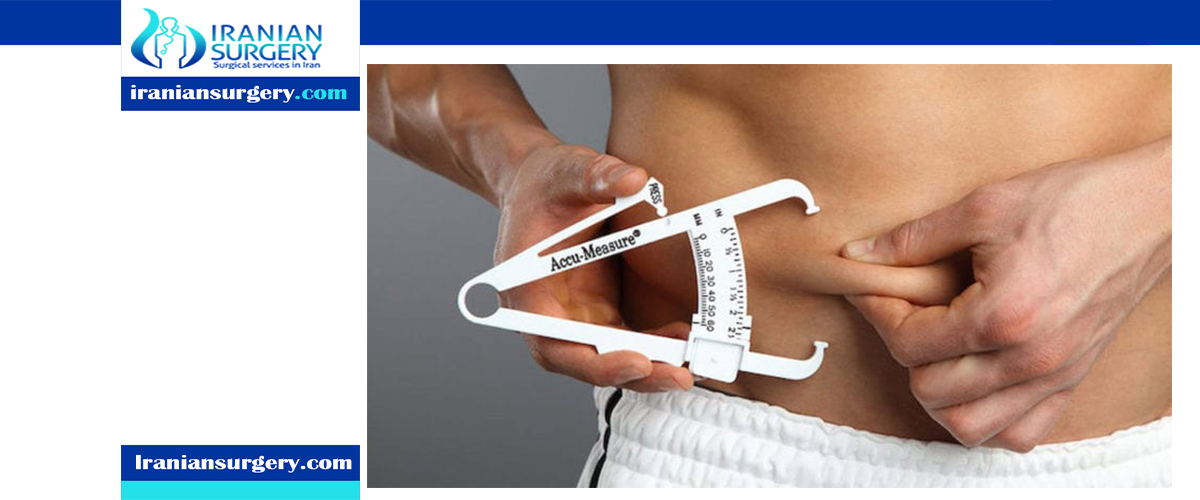What can I eat after liposuction?
What to do after liposuction to get best results?
Can I eat eggs after liposuction?
Guide to fast recovery after Liposuction: what to do and what not to do?
Recovery after Liposuction takes some time, but there are some steps you can follow to make the process go simpler and quicker. No serious complications are involved after the surgery, and the patient usually gets back to their normal life within two weeks.
By the way, recovery can vary from one person to another, depending on the extent of the surgery and the amount of fat suctioned out. With all being said, the way you deal with your healing process can make a big difference in how fast you get back on the track.
Read more about : Liposuction weight loss calculator
Read more about : How long after liposuction and bbl can i drink alcohol?
Read more about : A patient who came from USA to Iran for Liposuction and abdominoplasty surgery
What not to do after Liposuction?
1. Don’t exercise for 2-4 weeks
You should avoid serious exercising, heavy lifting, or bending during recovery after Liposuction. After around two weeks, you can return to exercising gradually. However, you should be careful about the level and intensity of your activities as high impact activities may not be tolerated by the end of the first month or more.
- Avoid unhealthy foods.
If you’re trying to lose weight, it’s a good idea to avoid unhealthy or junk foods, many of which are loaded with fat and calories. Steer clear of the snack food aisles in the grocery store when you go shopping.Potato chips, nachos, pizza, burgers, cake, and ice cream will not help you lose weight.
Stay away from starchy, refined carbs such as bread, crackers, pasta, rice, cereal, and baked goods. Eliminating these foods can also help you maintain your weight.
Look out for hidden sugar in your food choices, which can make you put on weight.
3. Don’t miss your doctor’s appointments
It’s very important to get through your recovery period under the supervision of your doctor. Especially, in case of excessive bleeding, constant pain, swelling or fever, you have to call/meet your doctor right away.
4. Don’t drive
While you’re taking antibiotics during your recovery period, try not to drive. Ask someone to drive you home after surgery as you are not allowed to drive.
5. Don’t say “yes” to sex!
Your body needs some time to adjust to the alterations made through Liposuction. To determine how soon you can have sex with your partner after lipo, you need to consult with your doctor. Usually, if it’s a less invasive and intense procedure performed on your arms, breasts or chin, you can turn back to sex after a few days. If it’s a more invasive procedure done on your thighs, belly or other parts of your body, you can resume your sexual relationship after around 10 days.
6. Don’t drink and don’t smoke
Drinking alcohol and smoking can interfere with your healing process. These habits can impact wound healing adversely. Stop them one month before and after your surgery.
Read more about : Tips for fast recovery after vaser liposuction
7. Clothing – knowing what to wear.
No Tight Waistbands. Avoid wearing anything that’s binding in the midsection following a lipo procedure. That includes elastic waistbands and belts.

Read more about : Liposuction Podcast with Dr. Afshan shah
What to do after Liposuction?
- Consult your doctor for post-op instructions.
It’s important to pay attention to your doctor’s post-op instructions and ask any questions you may have. This can help ensure that you heal properly and minimize your risk of complications.
You may want to ask your doctor questions about recovery at your last appointment before your surgery so that you understand everything.
Make sure that whoever accompanies you to the surgery also pays attention to the doctor’s instruction in case you are too weary from the surgery or anesthetic to pay close attention.
- Schedule sufficient rest time.
Whether you have your surgery in a hospital or as an outpatient, you will require at least a few days of rest. Generally, you can return to work or school after a few days. Discuss the amount of rest time you may need with your doctor.
The recovery period is directly related to the size of the surgical area and amount of fat your doctor removed. If you had a larger area treated, you may need more time to recover.
Prepare your home and bedroom before you leave for your surgery. A comfortable environment, including a cozy mattress, pillows, and bedding can help you rest and heal more effectively.
- Wear compression garments.
Following the surgery, your doctor will apply bandages and possibly also compression garments. Wearing compression bandages and garments can help maintain pressure on the area, stop bleeding, and keep the contours from the surgery.
Some doctors do not provide compression garments. You will need to purchase these either before or immediately after your surgery. You can find compression bandages and garments at pharmacies and medical supply stores.
It’s important to wear the compression garments. They provide support after surgery as well as helping reduce swelling and bruising and improving circulation, which can promote healing.
You will probably want to purchase compression garments designed specifically for the area of your body on which you had surgery. For example, if you had Liposuction on your thighs, you would want two compression garments to fit around each thigh area.
You may need to wear your post-op bandages for two weeks, while most people wear the compression garments for a few weeks.
- Take antibiotics to prevent infection.
Your doctor may prescribe antibiotics following your surgery to reduce the risk of infection. It’s important to take the entire course of antibiotics prescribed, to reduce the risk of infection.
Recent studies have shown that antibiotics may not be necessary after liposuction, so discuss this with your doctor. You may have a condition such as herpes that requires you to take medication to prevent infections or outbreaks.
- Manage pain and swelling with medication.
You may have some pain, numbness, and swelling after the surgery. You can ease the pain and swelling with over the counter painkillers or a prescription painkiller.
It’s normal to feel numbness and tingling, as well as pain for a few weeks post-op. You may also have swelling and bruising during this time.
It takes most people 1-2 weeks to start feeling better after surgery. You may need to take painkillers for this amount of time or longer.
Take over the counter pain relievers such as ibuprofen or acetaminophen. Ibuprofen may also help alleviate some of the swelling associated with the surgery.
Your doctor may prescribe a pain medication if over the counter pain relief doesn’t work for you.
Read more about : How to massage lumps after liposuction?
Read more about : Lipomatic
- Walk as soon as possible.
It’s important to start moving at a gentle pace as soon as you are able. Walking can help prevent blood clots from forming in your legs, which can be fatal. Gentle movement may also help you heal more quickly as well.
Although it is recommended to walk or do gentle movement as soon as possible, you may only return to more strenuous activity one month after surgery.
- Care for your incision.
Your surgical incision may have some stitching. Keep your incision covered according to your doctor’s instructions and follow their instructions for changing the bandages.
Your doctor may insert a drainage tube to help fluid drain from the wound.
You may shower after 48 hours, but should avoid soaking in a tub until your stitches are removed. Put on clean bandages and reapply pressure garments when you are done showering.
8. Diet – eating well for recovery.
. Reduce salt. Salt encourages our body to retain water, so get rid of unwanted swelling by eating foods that are low in sodium.
. No Gatorade. It may seem counterintuitive, but the sports drink is filled with sodium encouraging water retention.
. Increase protein. Protein is essential with wound healing, muscle and skin re-growth and repair and prevention of hair loss. Make sure that every meal or snack includes a good source of protein.
. Decrease Sugar. The intake of sugar can suppress the immune system, upset the body’s mineral balance, and increase fasting levels of blood glucose.
. Eat small amounts many times throughout the day. – Especially to avoid nausea and bloating.
. Wine works as a diuretic, so consuming a glass of wine 2-3 weeks post-operatively may be helpful for post-surgical swelling. Do not mix alcohol with any prescription drugs and consult with your physician first.
. Consume a quality probiotic. Antibiotics and other prescription drugs will destroy good bacterial in our gut. We recommend Inner-Eco – a fresh coconut water probiotic.
9. Apply ice compress on the treated area
Ice reduces inflammation and eases your pain after surgery. Cold compresses create a positive effect in the surgical area, making the oxygen circulate better. Furthermore, the nerves become less sensitive to the pain.
10. Hydration – drink low-calorie, non-carbonated beverages.
We suggest Water (Drink 10 glasses of water a day), Skim Milk, Diet Nestea, Diet V-8 Splash, Tea, Diluted Fruit Juice (about 4 oz. /day), Flavored water (i.e. Propel) and Crystal Light. – stay away from Gatorade due to high levels of sodium.
Watermelon. In addition to this tasty fruit there are a number of high water content fruits and vegetables including strawberries, grapefruit, zucchini and celery.
11. Massage for 10 minutes every day
To help your scar fade away faster, massage the surgery and incision sites with your fingers. This way you’ll get the blood and oxygen flowing, which is a great way to minimize scar marks. Massage can also reduce swelling as it does not let the fluids accumulate beneath your skin.


